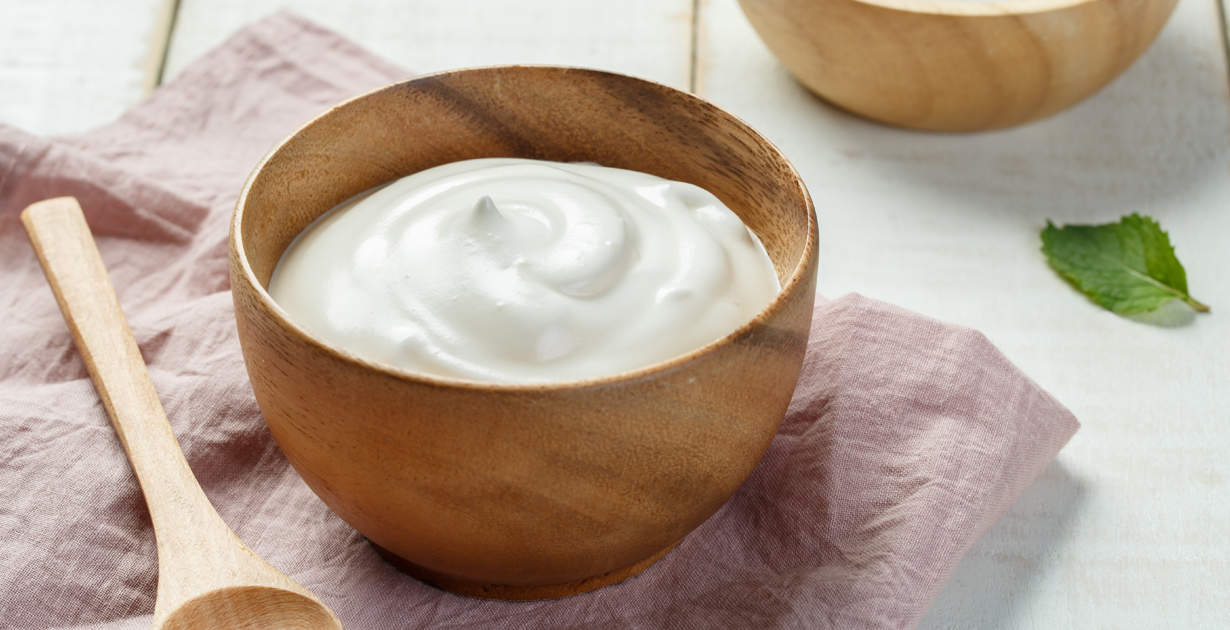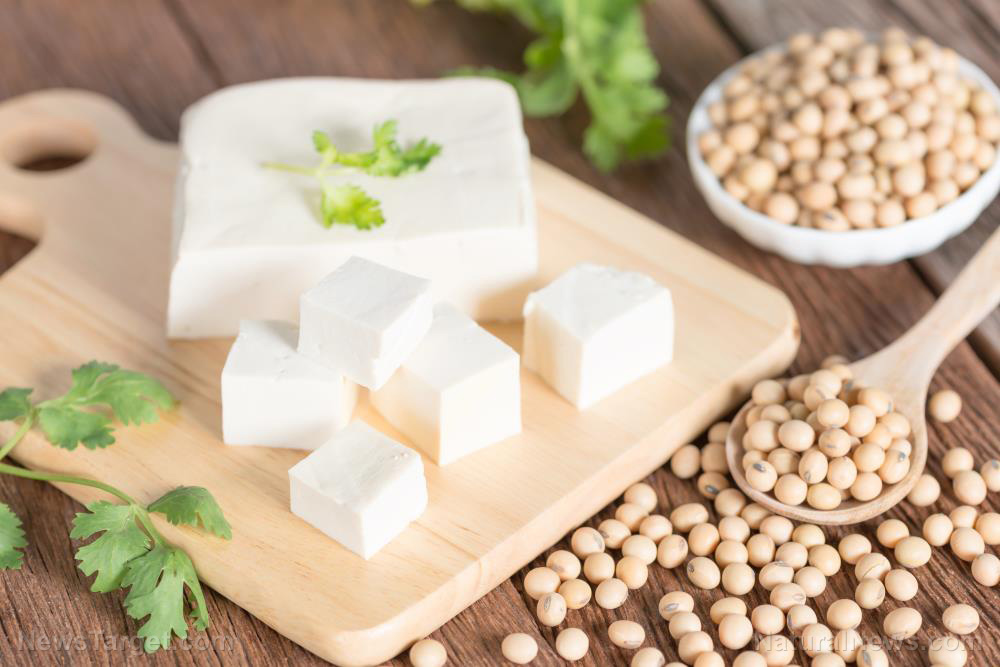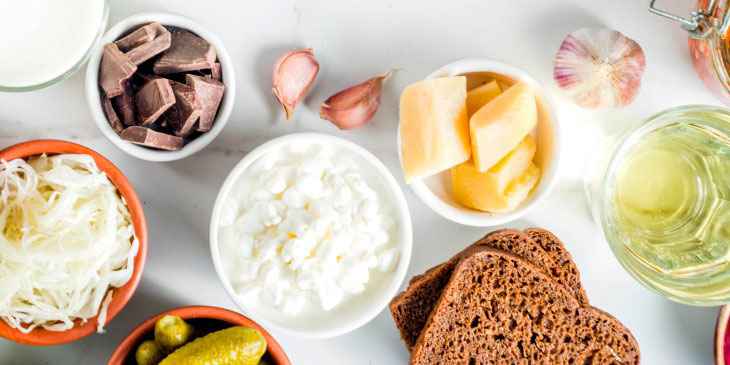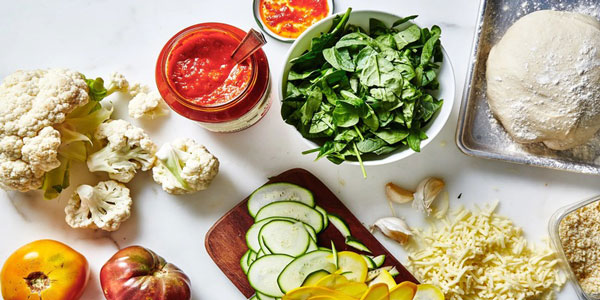Live bacteria in probiotic meals benefit the microbiome of the digestive tract. The gut microbiome is a population of billions of bacteria that significantly impact your health.
Fermented foods make up a large portion of the dietary supply of beneficial microorganisms known as probiotics. Fermentation refers to a manufacturing method that uses the slow, steady development of bacteria. If you want to produce kefir, you'll need to add kefir grains, which ferment the milk.
It's important to note that not all fermented foods contain probiotics. A probiotic is only considered one if it has positive health effects. Some bacteria are fantastic at the fermentation process, but they may not provide any health advantages.
Yogurt

Although yoghurt is widely available, not all of it contains probiotics. Yoghurt is produced by adding live bacteria to milk, which causes the milk to curdle and thicken. It's common for these bacteria to perish during manufacturing.
Check for the words "living cultures" or "active cultures" on the packaging. While the probiotic qualities of yoghurt are recent, the food's beneficial effects have been attested to as far back as 6000 B.C. in India.
Some Cheeses

The probiotic qualities of certain cheeses might improve intestinal health and lipid profiles. The cheesemaking process involves using live bacteria to ferment lactose, a sugar found in milk, into lactic acid.
Cheese is made by adding rennet, an enzyme that causes milk to curdle. Since heat can destroy the beneficial bacteria in cheese, the best probiotic cheeses are ones that have been aged rather than heated.
Kefir
Like its cousin's cheese and yoghurt, Kefir is made from fermented milk. Kefir provides an additional health benefit from the probiotics employed in preparation, as these microorganisms can continue to increase after production.
Kefir has a smooth, creamy texture and an acidic, zingy flavour. It's delicious and practical for balancing the sugariness of frozen treats like smoothies, popsicles, and ice creams.
Try kefir if you're looking for a spreadable cheese alternative or a savoury addition to a summer salad. You might even skip the spoon and gulp it down without any preparation.
Kombucha
It is believed that the origin of the fermented tea beverage known as kombucha lies in either China or Japan. Traditionally, kombucha ferments black or green tea with a colony of beneficial bacteria, or SCOBY.
As interest in kombucha has grown, so has the variety of starting teas available. Kombucha has a gentle fizz and comes in much different fruit, herb, and spice tastes. Bacteria in kombucha may have probiotic benefits, lowering the risk of cardiovascular disease and improving glucose management, according to a paper published in 2014.
However, the majority of studies relied on animal subjects. Some kombuchas may include excessive sugar, sweeteners, or other additives, so keep that in mind.
Tempeh
Soybean fermentation is the basis for tempeh, which is said to have been developed in Indonesia over many centuries. Because of the low level of fermentation, the soybeans don't have an overpowering taste.
There aren't many kinds of meat that tempeh can't stand for. You may use it as a meat substitute in vegetarian burgers, crumble it into stir-fries, or bake it in a casserole. However, the beneficial probiotic bacteria in tempeh are likely to be destroyed if the food is cooked at too high a temperature.
Though preliminary data shows tempeh may improve the microbiota, most studies have been conducted on animals or in small samples of people. Researchers need to study bigger populations of people to get reliable results.
Kimchi
Kimchi, a fermented vegetable and herb dish, is a cultural treasure in Korea. Ingredients like ginger, garlic, chilli peppers, salt, sugar, and onions are typical.
Kimchi's bold taste stands on its own or complements other foods like rice, grains, or poultry. You may also incorporate it into savoury dishes like stews, scrambled eggs, and sauces, but keep in mind that cooking may destroy the beneficial probiotic bacteria.
Some research has associated benefits to digestion, the microbiota, and even cholesterol levels with kimchi. However, most recent investigations have only been conducted on animals or are limited in scope.
Sauerkraut
Sauerkraut may have a German name, but it was developed in China. Both kimchi and sauerkraut are examples of fermented cabbage dishes. Raw, uncooked sauerkraut is a particularly rich source of lactic acid-producing microorganisms.
Major contributors to probiotic health enhancements that may help lower inflammation include bacteria that produce lactic acid.
Sauerkraut might aid digestion and help keep cholesterol levels normal, too. Sauerkraut is versatile; it goes well as a salad accompaniment, on top of avocado toast, or mixed in with rice or potatoes. It's fantastic as a spread or a guacamole garnish, too.



